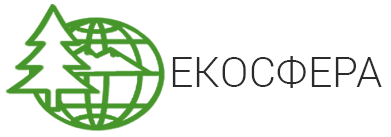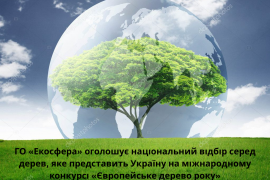
According to the Law of Ukraine “On Waste”, as of January 1, 2018, the disposal of MSW at landfills, namely those fractions that are recyclable, is prohibited. However, in fact, this rule of law does not apply to landfills and landfills that receive tons of garbage, the lion’s share of which can and should be recycled by producing new items and materials. These wastes include organic waste – “green waste”, ie tree residues, biomass after weeding flower beds, fallen leaves; as well as food waste – husks after cleaning vegetables and fruits and leftovers.
One resident of Uzhhorod accounts for more than 650 kg per year of waste disposed of at the landfill where they are disposed of. This landfill is located near the city – in the village of Barvinok. It was opened about 20 years ago and hoped it would serve the city for decades. However, this landfill has already been filled by 97% and will need to be closed in 3-4 years.
According to research by a student at the University of Darmstadt, Julia More, 40% of the total mass of garbage is in the wet fraction (food and organic waste). Organic debris decays, promotes the spread of rodents, epidemiological outbreaks and, as a result of the decay process, raises the temperature inside the garbage pile to 60-80 C, and during the hot period it can lead to spontaneous combustion and large-scale fire.
The Uzhhorod Development Strategy by 2030 provides for the establishment of a system of organic waste collection from the population and by 2030 it is planned that this system will cover at least half of the population.
If the waste sorting and waste management system is properly organized, the organic waste will not enter the landfill and will become the raw material for the production of quality fertilizer. The result of this pilot project will be an example of the sustainable management of biological waste that will be proposed by the applicant to city authorities for implementation throughout the city. This practice of bio-waste management will reduce the amount of garbage that gets to the landfill to 40% within 5 years. City beds will receive free fertilizer. Residents will stop burning dry leaves polluting the air in the city.
Territory of activity: Uzhhorod.
Objective: To promote the sustainable management of organic waste and reduce waste in Uzhhorod by familiarizing the locals with the possibilities and methods of organizing a composting system in the yards by creating a demonstration site for the disposal of organic waste on the basis of the “Prolisok” primary educational complex. Change the perception of waste locals as unnecessary to the realization that waste is a resource that should not be disposed of in a landfill through educational work and a powerful information campaign.
Result:
- 14 composters for composting fallen leaves and food waste have been installed on the territory of the “Prolisok” primary educational complex in Uzhhorod.
- Information booklets with a circulation of 500 copies were published.
- An information campaign was conducted in Uzhhorod.
Partners: Agentura in support of regional development Košice, Uzhhorod Development Agency, EU.







